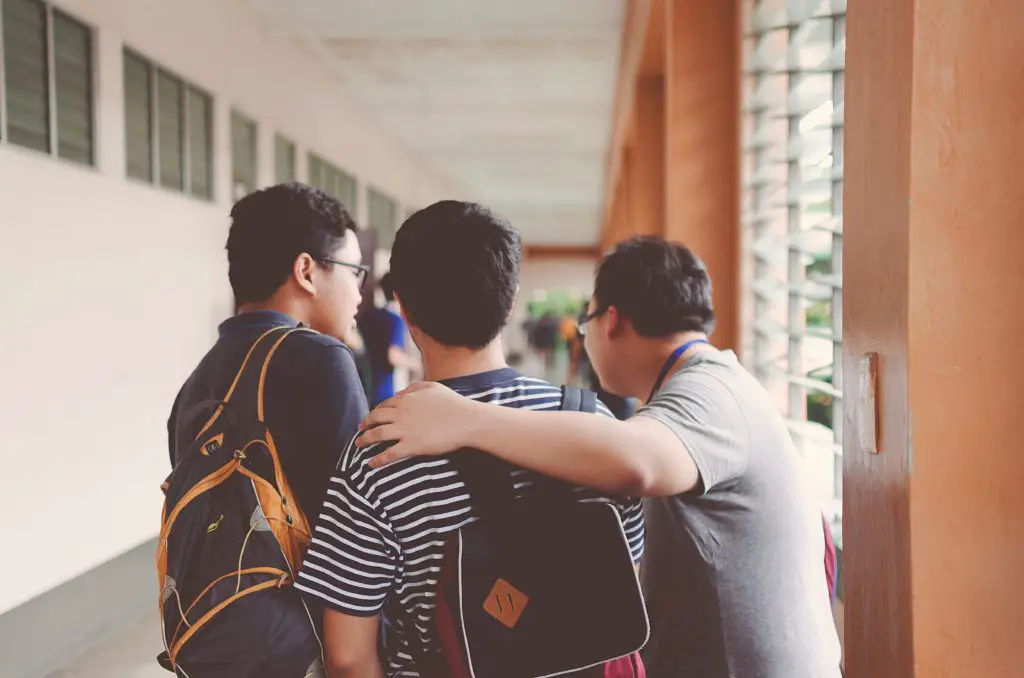To diversify their pool of students and attract other minorities, many higher educational institutions such as colleges and universities would like first-generation students to attend their schools. At the same time, many first-generation students want to break the cycle of poverty and move on to better opportunities offered by having an excellent educational degree in hand. Yet, many people wonder what percentage or proportion of first-generation students attending colleges or universities in the United States of America. Let’s start with What Percentage Of Students Are First-Generation.

According to the National Data Fact Sheets, in 2019, about 56% of students attending higher educational institutions were first-generation students. First-generation students are also a beacon of hope for the younger generations since it means that the next generation can still go to college if they wish to.
What Are First-Generation Students?
Various dictionaries, academic research papers, and portals have different definitions of being a first-generation student. But the common consensus is that first-generation students are the children of parents who do not hold a bachelor’s degree or an undergraduate degree. Therefore, being a first-generation student for any given family means a big deal to the family since it represents a possibility of social mobility for them.
Some want to know these statistics to conduct research, and other students like high schoolers want to know this data to feel comforted that there are other students out there who feel insecure about enrolling or even applying to higher education institutions as first-generation students themselves.
The United States of America is witnessing a mass social mobilization movement wherein first-generation students and children of immigrants are actively looking to improve their chances of having a better life by enrolling in higher educational institutions.
Resources For First-Generation Students
The school, a first-generation student, attends is one of the most significant resources they can have. In addition, colleges and universities have a lot of counselors and psychologists on board who can help you navigate the unknown territory of being a first-generation student working their way towards a degree. In addition, there are other support programs or clubs a university can have, which are exclusively for first-generation students to have a robust support system.
‘America Needs Yourself’ is a resource for first-generation students in California, New York, Illinois, and New Jersey. They help first-generation students while being low-income and high-achieving in nature. The students who take the help of America Needs Yourself have a history of providing career guidance and grants to these students.
Re-Imagining the First Year is another institution that some colleges have since 2016, where they offer many programs and resources to first-generation students. This group and program helps boost the retention and graduation rates for first-generation students while also boosting the student experience.
Scholarships for First-Generation students
‘Choose Your Future Scholarship Fund’ is only applicable to first-generation students that are graduating high school in Chicago. These students can apply to Choose Your Future Scholarship Fund where preference is given to first-generation students. The “Cynthia E. Morgan Memorial Scholarship Fund” is given to first-generation students in 11th or 12th grade in Maryland who are looking to attend a trade school, a community college, or pursue a bachelor’s degree.
Winners are granted $1,000, as long as the student is looking to study in the medical field while continuing to study in the state itself. Lastly, we have the “IFSA Diversity Scholarship,” which is granted to students who are first-generation or are from an underrepresented minority. Winners of this scholarship can be granted up to $10,000 a month.
Challenge A First-Generation Student Faces
The following are the challenges faced by first generation students:
A Lack Of Knowledge About The College Experience
Generally, the information parents avail from their years in college will be passed down to the kids. What to expect, what to avoid, and how to navigate making friends while balancing education – everything will be passed on from a parent to the child.
However, first-generation students, do not know what to expect from the college experience. Owing to the lack of information, and lack of a support base when it comes to going to a college, many first-generation students will drop out due to this reason.
Guilt
Many first-generation students contribute significantly when it comes to earning money for their households. Other times, if a first-generation student is not working, they will take care of the house when both their parents are working. When first-generation students have to leave their homes to go to college, many feel guilty about leaving their family and responsibilities behind.
First-generation students from immigrant families also feel guilty especially if they are the only English-speaking member of the family. When it comes to first-generation students, have trouble deciding between what to take with them and what to leave behind.
Finances And Social Life
Many first-generation students who are attending an Ivy League college such as Harvard, Yale, Dartmouth, or Brown have their tuition, room, and board, and meals covered by scholarships. But at the same time, many other first-generation students who cannot qualify for a scholarship or a grant in another other school see that they might need to drop out of college to reduce the pressure on their families in financial terms.
Conclusion
Colleges love to have first-generation students attending their institutions. First-generation students have a tough time when it comes to attending schools and colleges. A myriad of factors such as lack of money, lack of support, and deep-rooted psychological problems can cause a hindrance when it comes to first-generation students graduating. While these first-generation students are obviously smart and deserving of admission to these schools, many admins look at first-generation students as nothing more than fulfilling a diversity requirement.
Frequently Asked Questions
- What is the percentage of first-generation students who are enrolled as full-time students?
65% of first-generation students are enrolled as full-time students.
2. What percentage of first-generation students use the health services on campus?
Only 14% of first-generation students use health services on campus.
